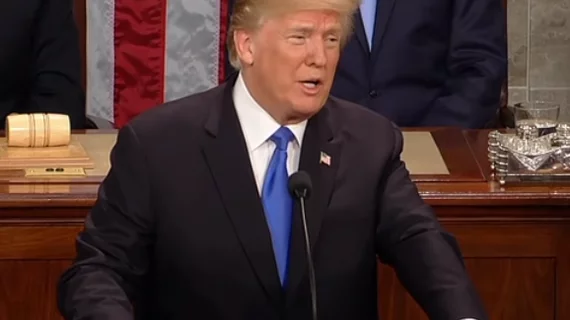HHS diverts $40M to immigration crisis under Trump policy
President Donald Trump’s policy of “zero tolerance” on illegal immigration has led HHS to redirect millions in funding to house migrant children separated from their parents at the border.
Announced in May, the policy, which Trump halted June 20 via executive order, was met with backlash after images and sounds of crying children in federal detention centers were brought to light.
Prior to gaining media attention, HHS officials planned to direct $263 million to house migrant children separated from their parents, according to a draft document signed by HHS Secretary Alex Azar. The transfer of funds was never made as a result of the heightened scrutiny over the issue.
The agency has diverted at least $40 million over the past two months to care for and reunify migrant children separated from their families, Politico reported. Housing costs are estimated at $1.5 million per day.
Critics argue that the immigration policy is creating undue financial burdens that could pivot resources from critical health programs and research.
“The agency has dipped into nearly $200 million in funds that were initially steered to the refugee office in the waning days of the Obama administration, including at least $17 million in unspent funds on the Ryan White HIV/AIDS program,” Politico reported, noting the funds were originally moved under the Obama administration due to unpredictable border pressures.
One of the major drivers of the high cost of caring for the migrant children is the quick pace in which shelters are needed as a result of a surge of children separated from their families, according to Politico. More than 2,500 children were separated since May, costing more than $30 million in care and housing, Politico reported.
HHS spent $10 million to hire 100 additional case managers and roughly 50 support staff as the agency and the Department of Homeland Security have scrambled to meet a court-mandated deadline to reunite children with their families.
HHS has made other significant budget decisions recently, including terminating a widely-used clinical database of best practices known as the National Guideline Clearinghouse.

